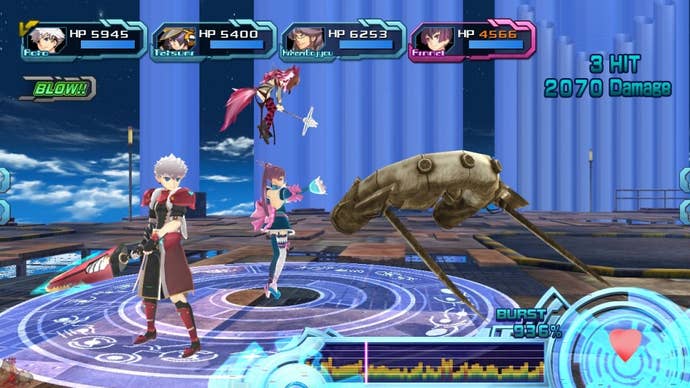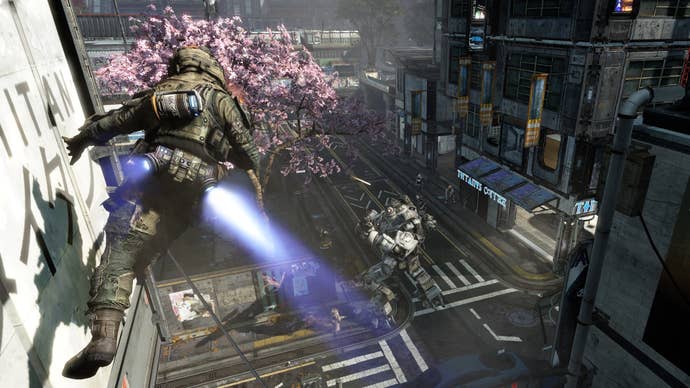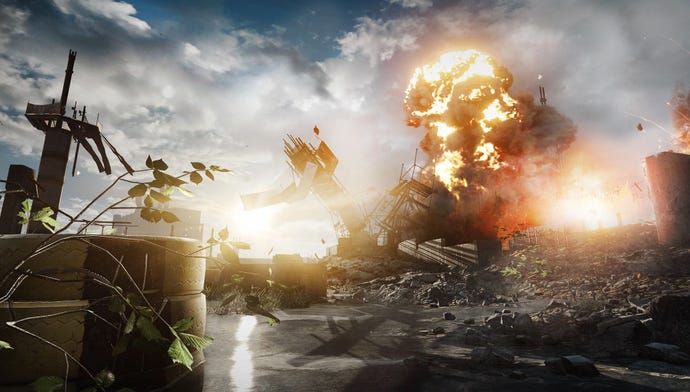E3 Press Conferences Aren't for Everyone
Did you watch any of the E3 press conferences hoping for something a little different to what you saw? You're not alone.
This article first appeared on USgamer, a partner publication of VG247. Some content, such as this article, has been migrated to VG247 for posterity after USgamer's closure - but it has not been edited or further vetted by the VG247 team.
"War never changes," wrote Eurogamer's Rich Stanton earlier today, and it's a feeling it's easy to empathize with after having watched all of the big press conferences that kick off E3 proper.
Guns and cars. Open world multiplayer. Buzzwords like "social" and "sharing"; completely made-up nonsense words like "drivatar" and "levolution." It's easy to see why some people are cynical.
To be perfectly frank, I'm usually one of those cynics around this time of year. The games I prefer to play during my own free time have drifted so far away from the blockbuster mainstream over the years that it's rare anyone will have ever heard of whatever it is I'm currently playing through. (Here's a test: I'm currently playing Ar Tonelico Qoga on PS3; who's heard of that?)

And yet the fact that I can drift so far from the mainstream and still have plenty to play means that I can't feel too bad about the shoot-shoot-vrooooom nature of E3 press conferences that irks people like Stanton so. Why? Because those conferences aren't aimed at people at me. Sure, there are occasional nice surprises - Monolithsoft's X in Nintendo's presentation springs immediately to mind - but for the most part, the material you see as part of your average E3 press conference is designed to be the biggest, the best and now, apparently, the most social - the things that will shift several million copies, in other words. Games that cost a fortune to make and that will likely rake in a fortune when they eventually make it to retail; games that, conversely, are considered a failure when they "only" sell five million copies. How does that even work?
The true E3 starts now; the time when the dust has settled from the bombast of the press conferences, and the time when smaller studios and developers can raise their heads in an attempt to get noticed.
In other words, these presentations are designed to impress in the shallowest manner possible - through visual and auditory spectacle. That's why we have so many explosions and gun battles; that's why we have the throbbing beats of dubstep accompanying everything; that's why we never see Battlefield 4's soldiers kicking back and relaxing in the barracks. It's because things going "boom" is exciting to watch on a primal level, even if you're not a gamer. It's because things going "boom" is a convenient way to show off your new technology's capabilities - to the public and shareholders alike.
Conversely, watching two characters interact with one another in an attempt to build up their interpersonal relationship - a type of game I'd far rather play - is not interesting to watch if you're not participating. Similarly, turn-based strategy games, RPGs in which numbers pop up on screen, text-heavy visual novels and puzzle games aren't exciting to watch, so they tend to get left out of sizzle reels and on-stage demos, regardless of how interesting, fun or engaging they are to actually play. Lest we forget, this is the year we got Plants vs. Zombies: The Third-Person Multiplayer Shooter.
For me, the most exciting thing about when Sony first revealed the PS4 earlier this year was not the fact that the PS4 existed. No, it was a couple of barely-noticed slides at the end of the presentation that highlighted a wide variety of developers who are set to put out work on the new console. As an unabashed fan of games that feature doe-eyed girls and spiky-haired heroes with big swords, I was delighted to see companies like Gust, Compile Heart and NIS America on board. The presence of these developers gave me a degree of confidence that the new system would, at some point - if not immediately - carry the kind of experiences I'm interested in playing. When I start to feel jaded or cynical about all the shouting and gunfire that seems inescapable, I think back to those slides, and I feel somewhat better. If that doesn't work, I go and play something no-one has heard of and rejoice in the fact that despite its obscurity, it still exists and I am playing it.

What's worth remembering, then, is that the E3 press conferences, while giving a good indication of the high-profile titles that console manufacturers and publishers are keen to push, don't reflect a fully accurate picture of the diversity that makes up 2013's game industry. It's gratifying to see Sony, Microsoft and Nintendo all acknowledge the creativity of indie studios to varying degrees, but there's a whole tier of games between "triple-A blockbuster" and "quirky, weird indie title" that easily goes all but ignored. In many cases, that is where the most interesting games come from - not necessarily the best games, sure, but often that's where you'll find the true creativity, innovation and willingness to try something new.
For me, the true E3 starts now: it's the time when the dust has settled from the blustering bombast of the press conferences, and the time when these smaller studios and publishers can start to raise their heads a bit in an attempt to get noticed. If you're tired and cynical of games where you look down the iron sight of a gun or at the back end of a car, now is the time to start paying attention; we'll do our best here at USgamer to highlight some of the most interesting things we find out there.
